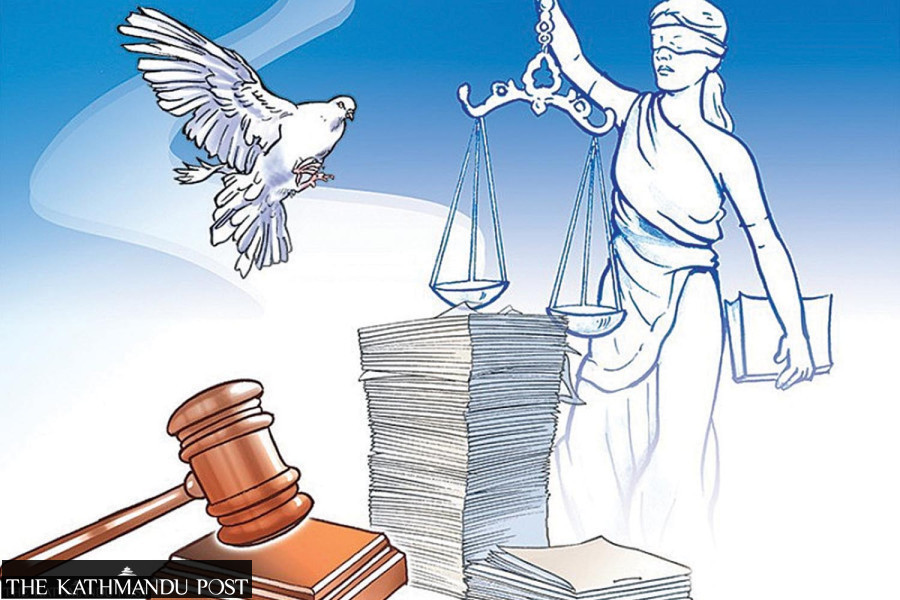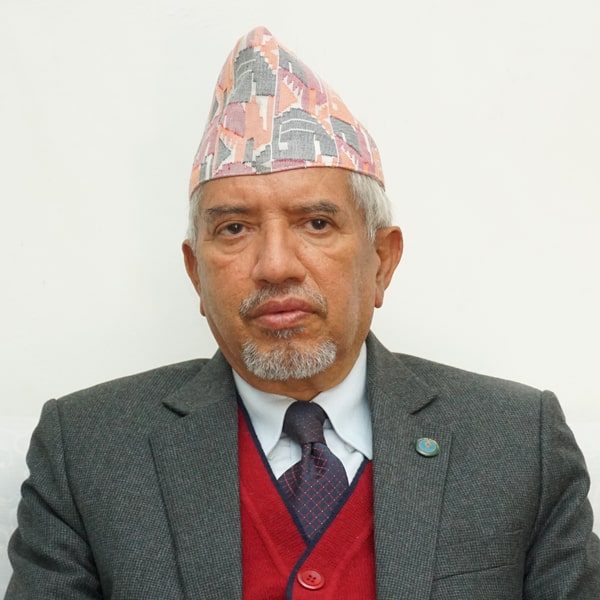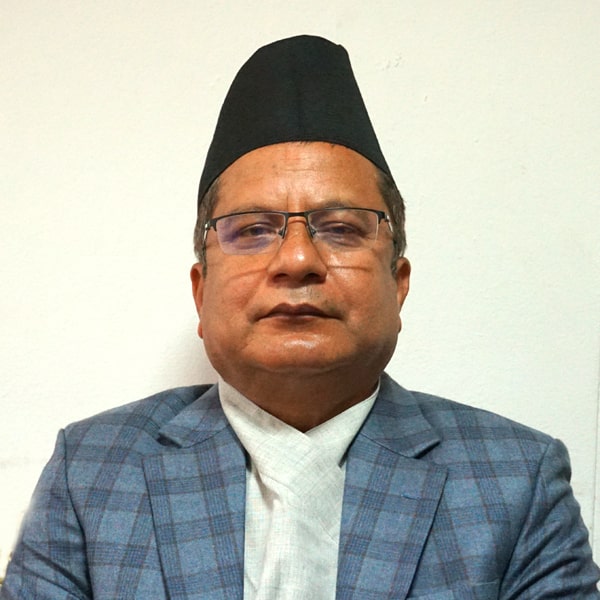Columns
Changing dynamics of the TJ process
TJ commissions must embrace the universal human rights principle of “No One is Left Behind.”
Surya Dhungel & Manoj Duwady
The transitional justice (TJ) process was innovated as an alternative concept of victim-focused quasi and extrajudicial mechanism to put a country in conflict onto a political track for establishing peace by reconciling the warring factions responsible for large-scale human rights violations, through truth-seeking, negotiations and restorative justice devices. There is no single specific TJ model in the world. Each country in conflict has developed its own tool for resolving country-specific societal issues. However, the experiences and good practices of post-conflict countries have helped evolve some basic internationally acceptable principles, allowing the members of the world community to end conflicts and reestablish peace.
The process has been found partially successful in putting an unruly country back into the political order despite continued dissatisfactions of the warring factions or core victim groups and human rights advocates against weak state arrangements and potential threats of conflict revival, as is experienced in South Africa and other African and Latin American Countries.
The TJ process in Nepal began with the Comprehensive Peace Agreement (CPA) signed on November 21, 2006, which ended the armed conflict that had started in 1996. The CPA initially aimed to investigate serious human rights violations and crimes against humanity committed during the conflict and to establish truth and reconciliation commissions. However, the emerging political developments and the failure of earlier TJ Commissions changed the initial TJ dynamics as promised and designed by the CPA. Now, the issue has entered the judicial regime.
Mishandled approach
Various executive orders, ordinances, judicial interpretations and directives of the Supreme Court (SC) led to the enactment of the Enforced Disappearances Enquiry, Truth and Reconciliation Commission Act, 2014, also called the TJ Act. Although commissions were established twice under this Act, they failed to deliver concrete outcomes, prompting a third amendment in 2024. This amendment expanded the definitions of key terms such as “victim,” “perpetrator,” “human rights violation,” and “serious human rights violation.” It included the formation of a special court with an exclusive bench at the SC to hear appeals. After the third amendment, justice-loving Nepalis, the victim community, human rights defenders and the international community expressed renewed hope and appreciation for the initiative, although there were still acute gaps in the amendments.
Subsequently, a five-member recommendation committee, inter alia, a search committee, led by former Chief Justice Om Prakash Mishra, was formed. It nominated official commissioners for the two commissions, which the government endorsed. Immediately after the formation and working of the recommendation committee, some leaders of victim organisations and human rights defenders raised concerns that the committee did not hold sufficient consultations with victims, experts and key stakeholders. They alleged that the committee didn’t make any effort to seek opinions from experienced and knowledgeable individuals of high integrity in compliance with the Act, but made biased appointments under political influence, and ignored victims’ voices.
Consequently, several victim organisations refused to recognise the hastily and unduly constituted commissions and demanded their dissolution and the initiation of a legitimate new process. Some groups even proposed forming a hybrid commission with international experts. But for disillusioned commoners and rural victims, convincing assurances and a response from high-level political leadership and two commissions are yet to come. Trust deficiency is likely to continue for a little longer.
It has been over 18 years since the CPA was signed. Families of the disappeared and killed, survivors of torture, and women and children who endured sexual violence during conflict are still awaiting truth, reparation and justice. Accusations of impunity persist, with many army units, barracks and offices implicated in serious violations. Rebel leaders and cadres also suffer psychological fear of international jurisdictions during foreign travel. Despite the urgent need to resolve these issues, stakeholders remain entangled in procedures and legal formalities—an example of insensitivity and irresponsibility. It is time for every conscious Nepali to reflect on the existing situation with seriousness. The government and state institutions have to be serious since they are directly accountable entities.
Victims’ concerns
Some of the criticisms made by victim leaders and organisations regarding the recommendation committee are valid. However, the commissions are already technically formed in accordance with the law and the demand for a new, especially hybrid commission involving international experts, may not look practical at this stage, nor is it in line with the objectives of TJ commissions and the national psyche. The burning question remains as to how amicably the problems raised by the opposing victim groups can be addressed with honesty and sincerity, and bring all victims into the mainstream in a dignified manner.
Despite their formation, the two TJ commissions face intense criticism from some domestic victim organisations and lack the desired international support. Remote-area victims are largely unaware of the commissions’ works and their ability to deliver results. Even local governments seem uninformed and confused about how they are expected to support the process. Institutional trust deficit is pervasive. This reveals a significant gap in communication, consultation and trust between the state system and actual grassroots victims.
The commissions, backed up by government and central political leadership, must work to rebuild trust to fulfil their mandate, if they have to prove their legitimacy as a representative TJ institution. The state leadership and key stakeholders need to offer dignified alternatives to the victims’ organisations and ensure their meaningful engagement in the process right from the outset. A continuous dialogue between the TJ Commissions and high-level government leadership with victim groups may help find an acceptable solution. An open offer of options to the victims and human rights communities for their representative and meaningful contributions to fill out the missing gaps, if acceptable to the opposing groups, could be tried through appropriate channels.
Without creating an environment of trust and genuine dialogue with the victims at all levels, the TJ process may stumble at any point. Trust deficit continues to remain a stumbling block. The writ petition filed by quite a big number of victims’ community at the SC may open a new avenue for judiciary-centric constructive dialogue and pave a new path for a historic solution. This is an opportunity for the SC to use its judicial tool of activism in helping resolve the TJ process.
Recommendations
The commissions must prioritise dialogue with all victim groups, civil society and human rights defenders and hold inclusive consultations on how to make the current draft regulations victim-friendly. They need to address conflicts of interest by incorporating leaders from victim organisations in the commissions’ structure where necessary, engaging them in high-level decision-making.
They must withdraw the impractical public notice published in Gorkhapatra on May 20, 2025, that allowed time-limited complaint submission, and issue a new notice after building trust using the authority granted under Section 42 of the Enforced Disappearances Enquiry Truth and Reconciliation Act 2014.
In addition, it is vital to establish a special investigation process with women’s representation from victim organisations to address crimes of rape and serious sexual violence alongside murder, torture and enforced disappearance. The commissions should also immediately provide medical and financial relief packages to victims of serious torture, rape and sexual violence, through a proper institutional and non-discriminatory mechanism.
They must embrace the universal human rights principle of “No One is Left Behind.” Rather than boasting about whom they have reached, the commissions should focus on who remains excluded and how to earn their trust.




 22.12°C Kathmandu
22.12°C Kathmandu
















